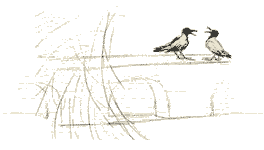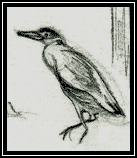A White Egret in the Shallows


165 pp Hardback with Dust Jacket
The Days of August and the End of Summer ... 15
Twist M. Good and the Louisiana Cloud Makers ... 21
The Dancers ... 26
Pick a Penny, Pinch a Penny, Make a Penny Do ... 31
I See, You See, We See ... 36
Sprinkle, Sprinkle, Little Rain ... 40
A White Egret in the Shallows ... 44
Fainting Goats, Coy Dogs, and Cow-Muck Dams ... 47
Our Oaks in Early Spring ... 52
“At the Tone, the Time Will Be...” ... 55
An Opening Day in June ... 59
The Funeral Was Held in the Old Church ... 66
The Buckle in a Box in the Bedroom Drawer ... 70
I Saw Two Fishermen ... 75
My White Pickup Truck Part 1 ... 80
My White Pickup Truck Part 2 ... 84
We Are Two People ... 88
“My Friends, I Had Not Intended to
Discuss This Controversial Subject at This Time...” ... 91
Tell Me a Story; Tell Me a Ghost Story ... 95
“The First Mate Was Drunk Today” ... 101
Bug-Eyed Monsters and Those People Next Door ... 104
I Saw a Ship Standing, Standing in a Moonlit Sea ... 108
Talkie, Talkie ... 111
Po’boys and Stella’s Day ... 114
Separate Conversations ... 118
Silver Dimes, Nickel Cokes, and Canal Street Streetcar Transfers ... 122
Gretal, Heidi, Annabelle, Heron, Lillie, and Jennie ... 126
Calendars are Nice for Remembering Times ... 130
Like an Ice Cube in the Sky ... 135
A Christmas Story ... 139
White Pickup Trucks and Blue-Eyed Babies ... 143
The Grove of Live Oaks ... 147
No Column Today ... 152
A Portrait of Jennie ... 156
Walkers in the Shallows ... 160
The End of a Time ...167


One Sunday afternoon last summer I received a telephone call from a highly accented woman who wanted to know when I was going to pay my Lowe’s credit card bill.
I was startled. I was dirty from working in the yard and had dashed up to the porch to get the phone. I hadn’t bought anything on credit from Lowe’s for two years so what she was saying couldn’t be right, but I was more amazed at her call. She had a terrible accent, almost to the point of not being understandable. But, more importantly, it was Sunday.
I told her so.
She wasn’t very nice, insisting in her shrill singsong voice that she had a legal right to call during the day on any day of the week. She stated this in excessive, but actually because of her accent, almost nonsensical detail.
Her accent was broadly Indian or Pakistani; maybe they had different laws there. I asked her where she was calling from. She refused to say, asking shrilly again about my delinquent bill. She did have the correct credit card information, so her call had to have been somehow initiated by Lowe’s.
Still, as far as I was concerned, she had gone much too far. I hung up.
The next day, I called Lowe’s and after playing the phone menu game and being shifted through half a dozen people each of whom had me placed on hold, I found they had made a billing error, that I owed nothing. The last person said he had entered a correction to that effect in the computer and that the correction would be reflected in my next month’s billing.
It was all done very mechanically, and I felt somehow cheated by the lack of any real apology. No one apologized for my Sunday caller.
Recently there has been a lot of talk about all the high-tech jobs being sent overseas. There seems to be a growing fear that this will put people in the U.S. out of work. I’m sure this is probably true, but with some serious cultural limitations.
Let me explain.
The telephone I bought the other day is a good example of this limitation. It was made in Malaysia and, while it worked very well when I got it home, it had a rather large flaw.
I brought the phone home to replace a phone I had bought a year ago. That one had been made in the Philippines. We needed a speakerphone, and the new one had that capability built into the handset as well as the base unit. This seemed a handy extra, something I could use when I was working in the yard and my hands were dirty.
It had another extra. Since we had Caller ID, the new phone had the ability to state over the speaker system the identity of whoever was calling. I have no idea how they could do this, but I thought it would be nice, a sort of lagniappe, and I happily installed the new phone in the living room.
But it turns out that Kipling was right, east is decidedly east and in many ways is going to stay that way; culture is not as easily exported as technology.
That evening as we watched TV, the phone rang and as it rang, between each ring it spoke to us in a fashion we had not anticipated. In a loud, heavily accented voice the small person inside the phone announced the name of the person who was calling.
“Call from Myoh Yahns.”
The handset was nearby. I picked it up and looked at the Caller ID on the LCD readout. It read Mary Jones. I pressed the talk button and answered it. It was Mary. I spoke to her for about a minute then hung up.
Stella looked at me and asked who it was.
“Well, that was Mary on the phone, but on the speaker, I think that was the woman I talked to last summer.”

Things are changing…
These words open White Egret in the Shallows. However, the original preface to the book did not contain these words. On that brilliantly bright Sunday in August 2005 when Stella and I packed our black tomcat, an old laptop, clothes for three days in the car and fled Katrina’s savage coming, the book in the laptop was finished.
Months later as I sat by the wintry window of a Pennsylvania farmhouse and reread the finished text, I realized a revision was needed. I realized that what I had written described a golden era, a wondrous time, a time that no longer existed. I began to slightly alter the book and found that when I was through, I had written a book about Katrina.
Not in the sense of graphic pictures of the storm’s horror and the aftermath of brutal debris and confused, almost criminal mismanagement, but a more important intangible loss. I had described a wondrous style of life that, with its passage, Katrina had taken from all of us that lived in the devastated small coastal towns of southern Mississippi.
It is a book to be read and thoroughly enjoyed but to remember as you turn the pages that what you are reading is not about now but the way things were in a coastal town in Mississippi.
